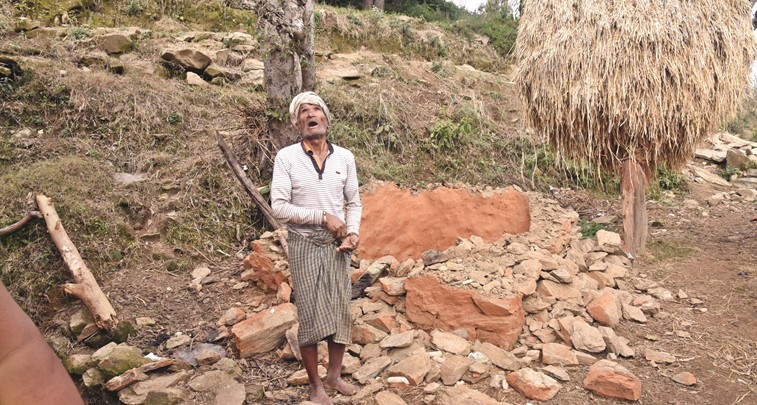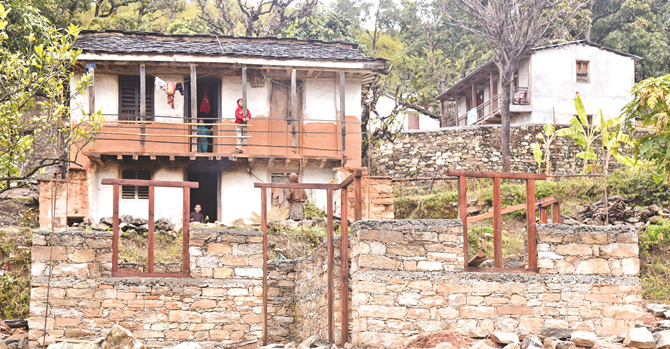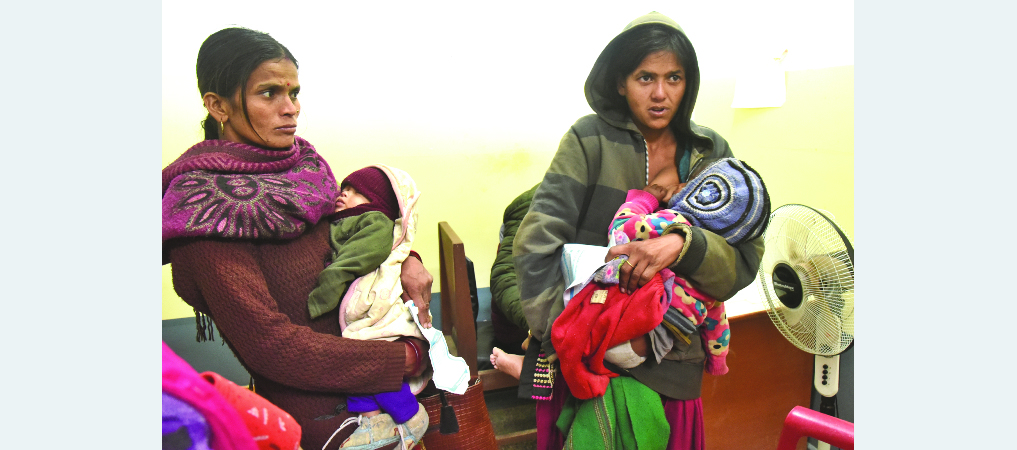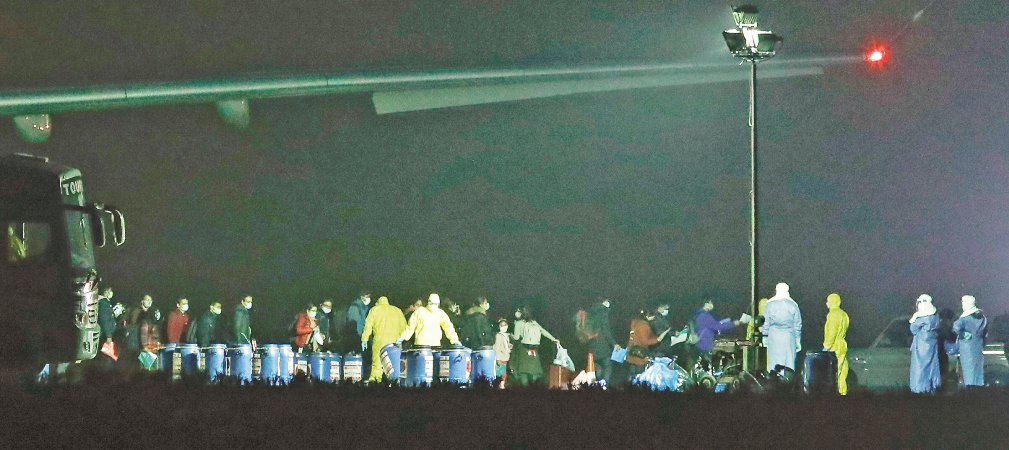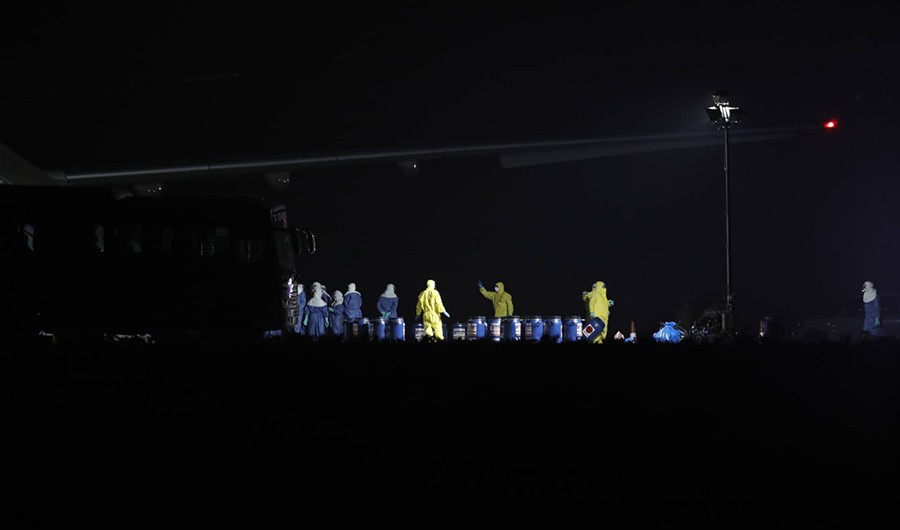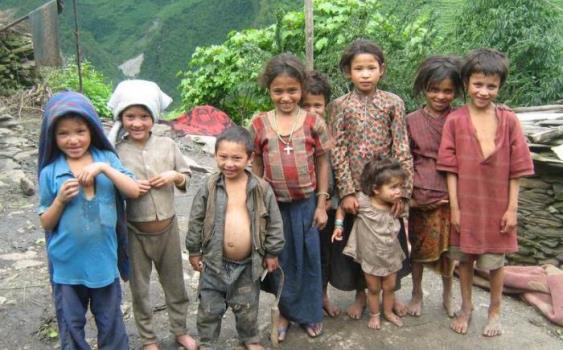Big Stride In Health Sector
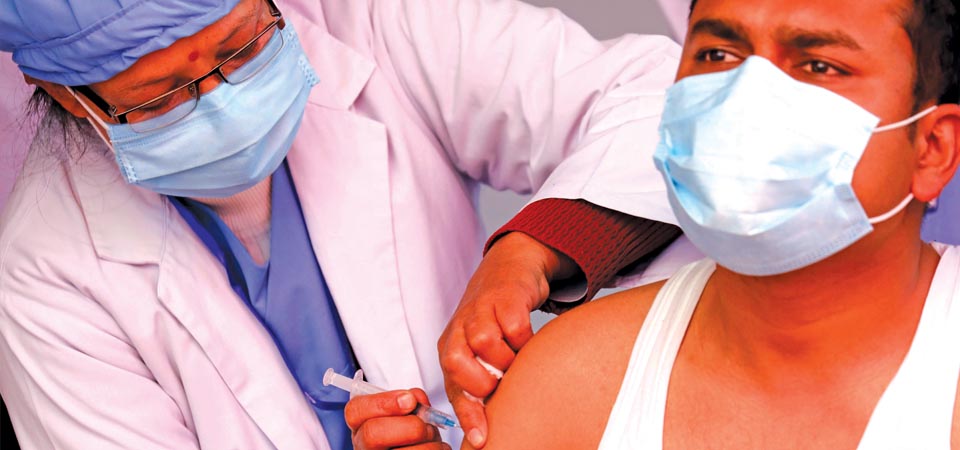
Ajita Rijal
In a bid to ensure citizen’s right to health, defined as fundamental one in the constitution, the government has initiated in the establishment of hospitals at every local level across the country. This is a big leap in the health sector that has been hit by poor infrastructure, inadequate human resources and scant budget allocation, among others.
Clause 35 of Constitution of Nepal stipulates that every citizen shall have right to free basic health services from the state, and no one shall be deprived of emergency health services, right to get information about his or her medical treatment, right to equal access to health services and right and access to clean drinking water and sanitation. The government has taken various measures to realise these constitutional provisions in the fiscal year 2019/2020.
Basic hospitals
As per the government’s policy of ‘one municipality-one hospital’, budget was allocated to build 5-15-bed hospitals at every local level. Foundations stones for over 300 hospitals were laid in a single day across the country on November 30, 2020. These basic hospitals will provide a great relief to the people, especially those living in remote areas of the country. They have been facing difficulty in getting an access to even basic health care services. The people from different quarters have lauded the drastic initiative as a revolution in the health sector.
Laying down the foundation stone of one of such emergency and communicable disease service building at the Bharatpur Hospital in Chitwan district, former Minister for Health and Population of Nepal Bhanu Bhakta Dhakal had said that the government wanted to make sure that every local level would have one hospital equipped with basic modern facilities.
These basic hospitals will have well-equipped infrastructure, doctors, health workers and health equipment. The government started building these hospitals as per the policies and programmes of the current fiscal year 2020/21. Similarly, National Health Policy (NHP) 2014 sets out a progressive agenda for improving the health and well-being of all citizens. It articulates the nation's commitment toward achieving universal health coverage (UHC).
For the fiscal year 2020-2021, the government increased the health sector budget significantly. Former finance minister Yubraj Khatiwada, while presenting the budget in May 2020, had said that high priority would be given to prevention of COVID-19 and other infectious diseases. Around Rs.90 billion was allocated for the MoHP to improve the health sector. Out of this, Rs.6 billion has been set aside to control the COVID-19 that triggered health and economic crisis.
The current health budget stands at Rs.90.69 billion, up by Rs. 20 billion against Rs. 68.78 billion of last fiscal year. The government has given priority to the healthcare sector to improve the health system and address COVID-19 and similar crisis in future. For example, the government has allocated over Rs. 14 billion for construction of basic hospitals at the local levels, among other allocations and programmes.
Efforts have made for coordination among the local units as well as equip health institutions with standard laboratory, pathology, sanitation and hygiene. High tech health equipment and infrastructures are being added to central hospitals. The work for establishing 10 trauma centres in hospitals near all major highways is underway. Similarly, in order to make health insurance available to all citizens within three years, the government has invested in insurance programme this year.
Enhanced infrastructures
Dr. Gunaraj Lohani, chief of Policy, Planning and Monitoring Division, MoHP, said that the government had expanded the capacity of the National Public Health Laboratory, set up high-tech laboratories in all provinces and enhanced the capacity of the Department of Drug Administration. For upgrading of health infrastructures, the work process has already moved ahead for construction of 50-bed communicable disease hospitals in all seen provinces. Tender process has been completed in some provinces while in others detailed project report (DPR) is being prepared.
According to Dr Lohani, 50-bed emergency services are being established at four central and provincial hospitals - Narayani, Koshi, Bharatpur and Pokhara Hospital. Work on construction of ware houses in seven provinces to store vaccines is moving at rapid pace. Trained human resources have been already readied for the operation of 5-bed basic hospitals at 649 local levels. In order to upgrade the district-level hospitals into 25-bed and 5o-bed hospitals, budget has been allocated, aside from human resources and building constructions.
The zonal/provincial level hospitals are being upgraded into 200-bed hospitals, and the central level hospitals to 500-bed. Trauma centres have been set up at 10 locations – Bardibas of Mahottari, Siraha, Bharatpur, Malekhu, Bhanu Municipality in Gandaki, Ridi health centre in Lumbini, Rakamkarnali in Karnali and in Baitadi in Sudurpaschim province.
Many initiatives have been taken for inter-institution coordination. Budget has not been sent to those local units which have not started work.
“This is the big leap in revamping the country’s heath system,” said Dr Lohani.
(Rijal is a TRN journalist)
Recent News

Do not make expressions casting dout on election: EC
14 Apr, 2022
CM Bhatta says may New Year 2079 BS inspire positive thinking
14 Apr, 2022
Three new cases, 44 recoveries in 24 hours
14 Apr, 2022
689 climbers of 84 teams so far acquire permits for climbing various peaks this spring season
14 Apr, 2022
How the rising cost of living crisis is impacting Nepal
14 Apr, 2022
US military confirms an interstellar meteor collided with Earth
14 Apr, 2022
Valneva Covid vaccine approved for use in UK
14 Apr, 2022
Chair Prachanda highlights need of unity among Maoist, Communist forces
14 Apr, 2022
Ranbir Kapoor and Alia Bhatt: Bollywood toasts star couple on wedding
14 Apr, 2022
President Bhandari confers decorations (Photo Feature)
14 Apr, 2022



